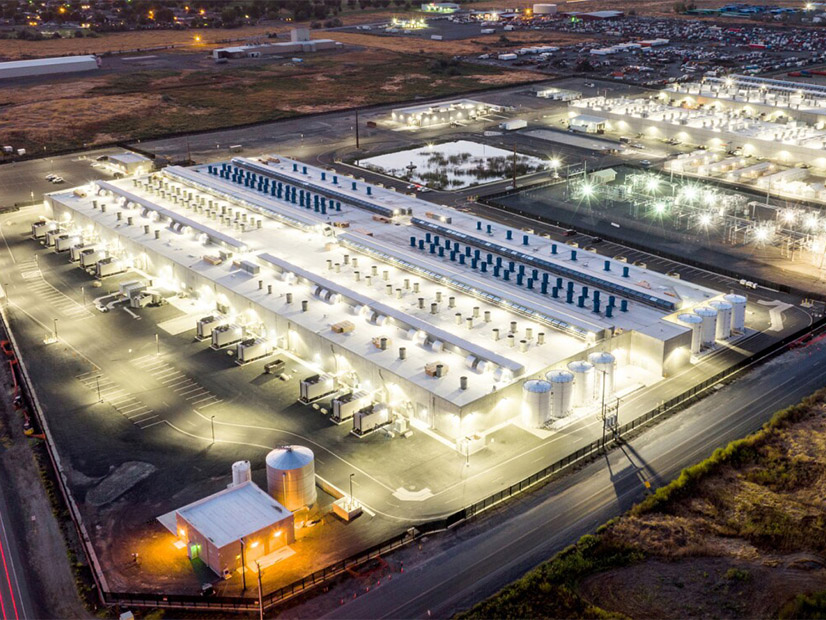Washington Gov. Bob Ferguson (D) signed an executive order Feb. 3 to explore the impact of data center growth on the Evergreen State, in a move that comes as the Northwest grapples with the mounting challenges and opportunities the centers could bring.
The order specifically establishes a workgroup that will publish a report by Dec. 1, 2025, to “recommend policies and actions for addressing energy use and impacts on the economy and job market,” according to a news release.
The group will include representatives from Washington’s Department of Commerce, the Utilities and Transportation Commission, the Department of Ecology, electric utilities, environmental advocacy groups, labor organizations and industry stakeholders, according to the release.
“We must ensure Washington remains a leader in technology and sustainability — these experts will help us do that,” Ferguson said in a statement. “This group will help us balance industry growth, tax revenue needs, energy constraints and sustainability.”
Fred Heutte, a senior policy analyst at the Northwest Energy Coalition, welcomed Ferguson’s initiative, telling RTO Insider that other Northwest states should launch their own studies in collaboration with their neighbors.
“The new data center development is already posing major and rapid increases in our local, state and regional electricity use,” Heutte said.
Ferguson’s order follows a report published by WECC forecasting “staggering” growth in electricity demand in the Western Interconnection over the next decade.
WECC predicted annual demand in the Western Interconnection will grow from 942 TWh in 2025 to 1,134 TWh in 2034. That 20.4% increase is more than four times the 4.5% growth rate from 2013 to 2022 and double the 9.6% growth forecast in 2022 resource plans.
Similarly, the Pacific Northwest Utilities Conference Committee’s Northwest regional forecast for 2024 found that electricity demand will increase from about 23,700 average MW in 2024 to about 31,100 aMW in 2033, an increase of more than 30% in the next 10 years.
Heutte said it’s important the Washington workgroup get input from local communities and tribes that have data centers nearby. The question of cost allocation is similarly crucial, he said, especially if data centers don’t fully cover costs related to their use or if utilities will not pay for new equipment and energy supplies.
“There is a risk that significant cost shifting could happen for all other power customers at a time when a lot of people are having … trouble with high bills, energy burden, struggling to pay their bills,” Heutte said.
Heutte also argued the workgroup should focus on grid flexibility and ensuring that companies behind the data centers work with the community.
“We want them to be good community partners, continue to support and expand clean energy, reliability and affordable energy costs for everyone,” Heutte said.





